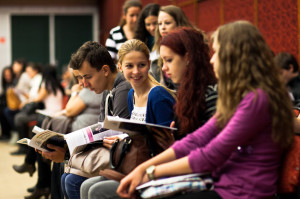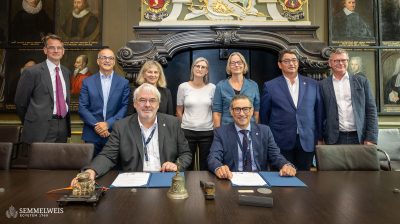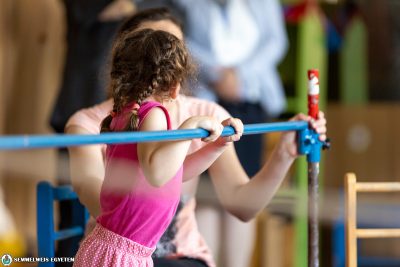The details of the new Erasmus+ which promotes educational and professional mobility are already available at the University’s website. The online registration will become available on February 3.
 Semmelweis University was granted participation right in the Erasmus+ programme as a result of a successful application. Full-time students of Semmelweis University who have successfully completed at least 4 semesters will be eligible to apply to the European Union’s new scholarship programme. The grant may only be awarded for conducting full-time professional training, studies or internship at a higher educational institution.
Semmelweis University was granted participation right in the Erasmus+ programme as a result of a successful application. Full-time students of Semmelweis University who have successfully completed at least 4 semesters will be eligible to apply to the European Union’s new scholarship programme. The grant may only be awarded for conducting full-time professional training, studies or internship at a higher educational institution.
The evaluation criteria of the call for proposal show that only the most knowledgeable and talented students may receive the scholarship. Accordingly the average grades, the scientific, professional and extracurricular activities and the language skills will all be key factors in selecting the winners.
In the framework of the programme – which will be realised between July 1, 2014 and September 30, 2015 – students will have the opportunity to study or train in the course of 3-12 months at a European partner university or healthcare institution. The scholarship partially covers the incurring costs of the students which includes accommodation, travel expenses, insurance and general living costs.
According to the Tempus Public Foundation the proposal contributes to Europe’s efforts to provide education to its citizens as befits a knowledge-based society. Additionally, it is also necessary because “education, training and non-formal studying are an integral part of creating jobs and increasing the competitive power of the continent.”
The international study opportunity offered by the scholarship enables students to benefit educationally, linguistically and culturally from the experience of learning in other European countries. They also promote cooperation between European higher educational institutions as well as increase the number of highly qualified professionals as well. One of the primary objectives of the programme is to develop key competencies and skills, increase the level of innovation, promote the modernisation of the education and training systems, develop language training and learning and finally to popularise intercultural sensitivity.
Mária Mozer
Photo: Attila Kovács – Semmelweis University
Translated by: Bonifác Makkai


